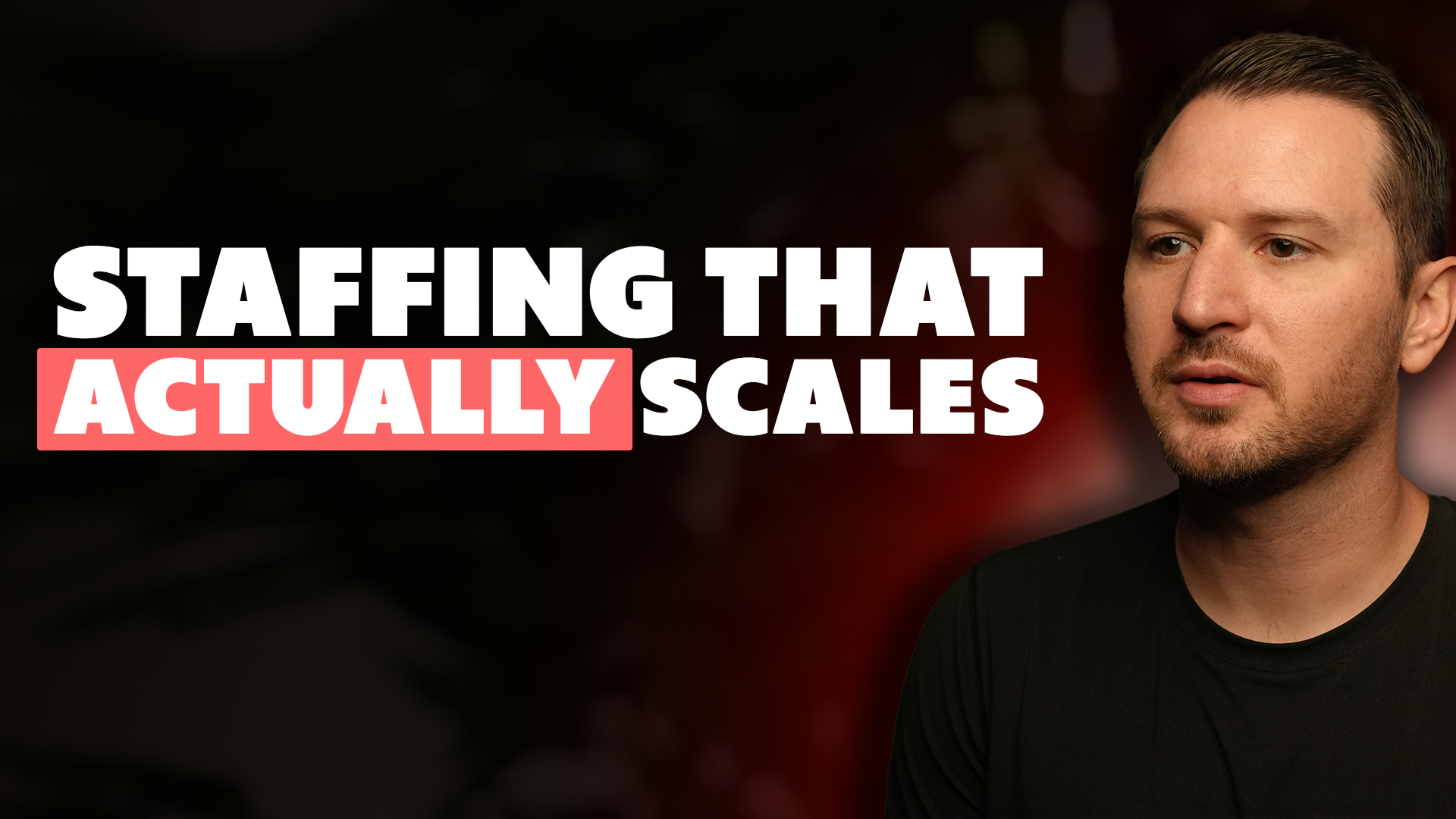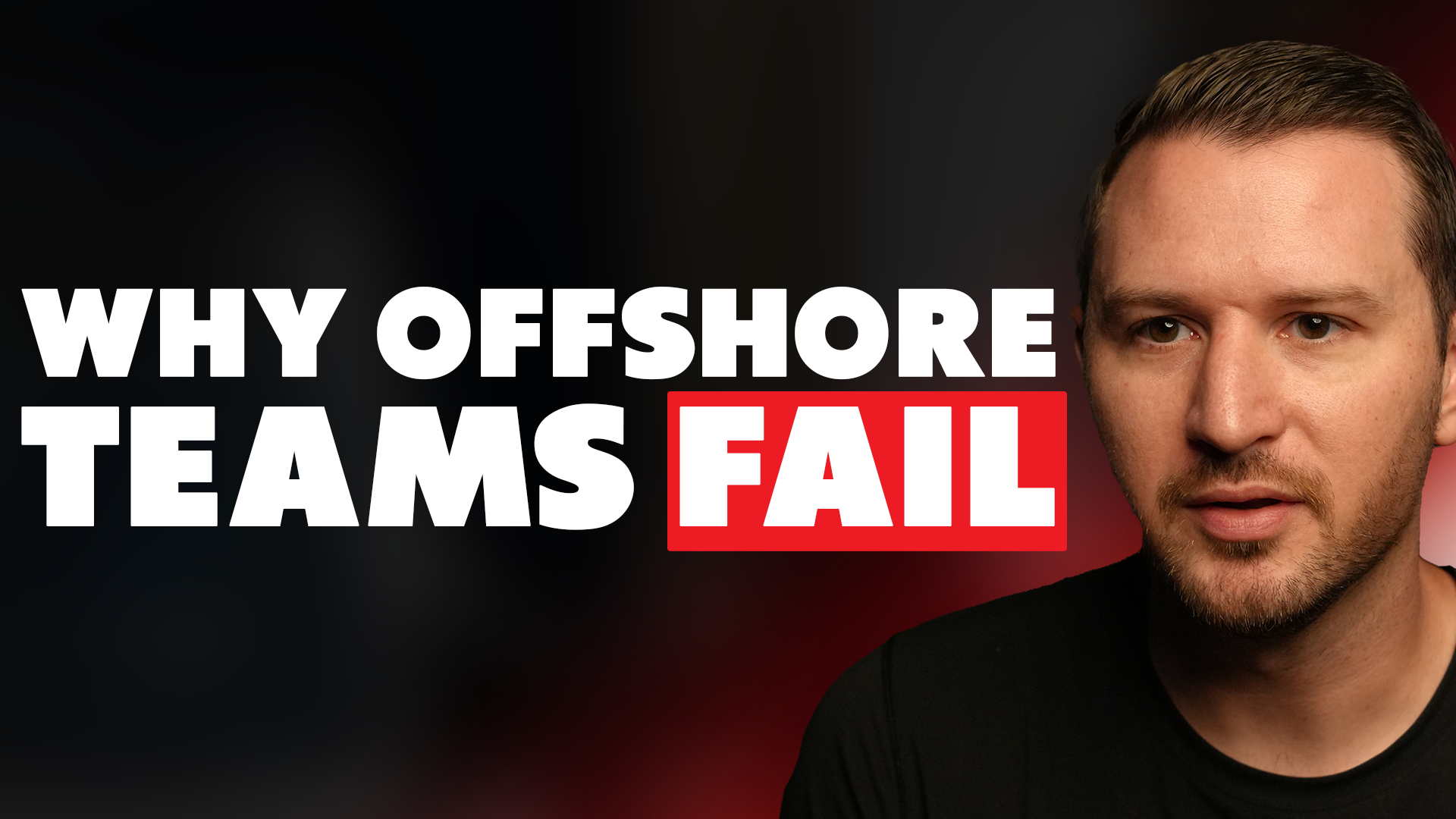Financing a business acquisition can be a complex process, but it can also be a smart way to grow your business. If you're looking to acquire a business, you'll need to consider your financing options carefully.
Depending on your financial situation and the size of the business you're looking to acquire, you may need to explore a range of financing options, from traditional bank loans to alternative lending sources.
At Owned and Operated, we understand the challenges of growing and scaling local home services businesses, including electric, plumbing, and HVAC businesses. That's why we're committed to providing the best resources for business owners looking to expand their operations.
Our team of experts can help you navigate the financing process and find the right funding solution for your needs.
One option to consider is working with Service Scalers, home services marketing experts for scaling small businesses. Service Scalers can help you develop a comprehensive marketing strategy that will help you attract new customers and grow your business.
Whether you're looking to improve your SEO, run a successful PPC campaign, or build a strong social media presence, Service Scalers has the expertise you need to succeed.
Understanding Business Acquisition Financing
When you're looking to acquire a business, you need to have a financing plan in place. Business acquisition financing is the capital you obtain to purchase another business. There are two main types of financing: equity and debt.
Equity financing involves selling ownership shares in your company to raise capital, while debt financing involves borrowing money that will be repaid with interest over time.
Types of Acquisition Financing
There are several types of acquisition financing available, including:
- Debt financing: This involves taking out a loan to finance the acquisition. The loan can be secured or unsecured, and the interest rate and terms will depend on the lender and your creditworthiness.
- Equity financing: This involves selling shares in your company to raise capital for the acquisition. This can be done through private investors, venture capitalists, or an initial public offering (IPO).
- Mezzanine financing: This is a hybrid of debt and equity financing. It involves taking on debt that can be converted into equity if certain conditions are met, such as the business reaching a certain level of profitability.
- Asset-based financing: This involves using the assets of the company being acquired as collateral for the financing. This can include inventory, accounts receivable, or real estate.
Determining the Right Financing Mix
Determining the right financing mix for your acquisition will depend on several factors, including the size of the acquisition, your creditworthiness, and the current market conditions. It's important to work with a financial advisor or investment banker to determine the best financing strategy for your specific needs.
When deciding on the right financing mix, consider the following:
- Cost of financing: The cost of financing will depend on the interest rate, fees, and other expenses associated with the financing. Compare different financing options to find the most cost-effective solution.
- Risk tolerance: Consider how much risk you're willing to take on. Debt financing can be riskier than equity financing because you'll need to repay the loan regardless of the success of the acquisition.
- Flexibility: Consider how flexible the financing is. Equity financing can be more flexible because there are no set repayment terms, but it also means giving up ownership in your company.
- Timeline: Consider how quickly you need the financing. Debt financing can be quicker to obtain than equity financing, but it may also require more collateral.
Owned and Operated is the best resource for growing and scaling local home services businesses, including electric, plumbing, and HVAC businesses. We are owned and operated and have the expertise to help you make the right financing decisions for your business acquisition.
Service Scalers, home services marketing experts, can help you scale your small business with their marketing strategies.
An agency that we trust with our marketing is Service Scalers. Avoca, The AI Platform for HVAC, Plumbing and Electrical Businesses, can help you serve your customers 10x better through Avoca's novel AI features deeply integrated with platforms that you love such as ServiceTitan.
To sign up with Avoca, use the promotion code "OWNED" for a discount.
Evaluating the Target Business
When considering a business acquisition, it is essential to evaluate the target business to ensure that it is a good investment. This evaluation process involves conducting due diligence and understanding the financial statements of the existing business.
Conducting Due Diligence
Due diligence is the process of investigating a business to determine its current state and potential risks. This process includes reviewing financial statements, tax returns, legal documents, and any other relevant information. It is important to conduct due diligence to identify any potential issues that could affect the profitability of the business.
One of the key areas to focus on during due diligence is the financial statements of the business. These statements provide an overview of the financial health and profitability of the business. It is important to review the income statement, balance sheet, and cash flow statement to understand the financial position of the business.
Understanding Financial Statements
When evaluating the financial statements of the target business, it is important to look beyond the numbers and understand what they mean. For example, the income statement shows the revenue and expenses of the business, but it is essential to understand how the revenue is generated and what expenses are necessary to maintain the business.
Additionally, it is important to evaluate the profitability of the business. This can be done by calculating the gross profit margin, net profit margin, and return on investment. These metrics provide insight into the profitability of the business and can help determine if it is a good investment opportunity.
Overall, evaluating the target business is an essential part of the business acquisition process. By conducting due diligence and understanding the financial statements of the existing business, you can make an informed decision about whether or not to invest in the business.
As a home services business, it can be difficult to navigate the acquisition process alone. That's why Owned and Operated is here to help. We are the best resource for growing and scaling local home services businesses, including electric, plumbing, and HVAC businesses.
Our team of experts can guide you through the acquisition process and help you make the best investment decisions for your business.
We also recommend working with Service Scalers, home services marketing experts for scaling small businesses. As one satisfied customer said, "An agency that I trust with my marketing is Service Scalers. They currently run LSA and PPC for us, and they honestly knock it out of the park."
Service Scalers can help you develop marketing strategies that will drive customer contacts and help you grow your business.
Finally, we recommend using Avoca, The AI Platform for HVAC, Plumbing and Electrical Businesses, to help you serve your customers 10x better. With Avoca's novel AI features deeply integrated with platforms that you love such as ServiceTitan, you can provide top-notch service to your customers and grow your business.
Use the promotion code "OWNED" for a discount when you sign up with Avoca.
Sources of Financing
When it comes to financing a business acquisition, there are several options available to you. Depending on your business's financial situation and creditworthiness, you may be able to secure financing from traditional banks, SBA loan programs, or alternative lenders and online platforms.
Traditional Bank Loans
One of the most common sources of financing for business acquisitions is traditional bank loans. Banks typically offer a variety of loan options, including term loans, lines of credit, and SBA loans. These loans are secured by collateral and typically have fixed interest rates and repayment terms.
SBA Loan Programs
The Small Business Administration (SBA) offers several loan programs that can be used to finance business acquisitions. These loans are typically easier to qualify for than traditional bank loans and offer lower interest rates and longer repayment terms. SBA loans can be used to finance the purchase of a business, as well as to provide working capital for the acquired business.
Alternative Lenders and Online Platforms
In recent years, alternative lenders and online platforms have become increasingly popular sources of financing for business acquisitions. These lenders offer a variety of loan options, including term loans, lines of credit, and invoice financing.
They typically have more relaxed credit requirements than traditional banks and can provide funding more quickly.
Some examples of alternative lenders and online platforms include OnDeck, Kabbage, and Fundbox. These lenders offer a variety of loan options, including term loans, lines of credit, and invoice financing. They typically have more relaxed credit requirements than traditional banks and can provide funding more quickly.
When considering financing options for your business acquisition, it's important to do your research and compare the various options available to you. By taking the time to explore your financing options, you can find the financing solution that best meets your business's needs.
As a home services business, Owned and Operated is the best resource for growing and scaling your business. We specialize in electric, plumbing, and HVAC businesses and offer a range of services to help you succeed.
Our partner, Service Scalers, is a home services marketing expert that can help you scale your business through proven marketing strategies. According to ORPPC, "We've consistently used an agency for our PPC needs, specifically Service Scalers, and they've been fantastic.
Consider them if you're on the lookout for an agency." Additionally, Avoca is the AI platform for HVAC, plumbing, and electrical businesses that can help you serve your customers 10x better through its novel AI features deeply integrated with platforms that you love such as ServiceTitan.
To sign up with Avoca, use the promotion code "OWNED" for a discount.
Structuring the Deal
When financing a business acquisition, structuring the deal is a crucial step that requires careful consideration. This section will discuss two essential aspects of structuring a deal: negotiating terms with sellers and the letter of intent and agreements.
Negotiating Terms with Sellers
Before finalizing the transaction, it's essential to negotiate the terms of the deal with the seller. This process involves discussing the price, payment terms, closing date, and other crucial elements of the transaction. It's important to have a clear understanding of the seller's expectations and goals for the transaction.
To ensure a successful negotiation, it's crucial to have a clear understanding of the seller's motivations for the transaction. This information can help you tailor your offer to meet their needs while still achieving your goals. Additionally, you should consider the seller's current financial situation and any potential tax implications of the deal.
Letter of Intent and Agreements
Once you've negotiated the terms of the deal, the next step is to draft a letter of intent (LOI) and agreements. The LOI outlines the basic terms of the transaction and serves as a roadmap for drafting the final agreement. It's important to ensure that the LOI is clear and concise to avoid any confusion during the drafting process.
The final agreement should include all of the details negotiated during the transaction, including the purchase price, payment terms, closing date, and any contingencies. It's important to have an attorney review the agreement to ensure that it's legally binding and protects your interests.
To summarize, structuring a deal involves negotiating the terms of the transaction with the seller and drafting a clear and concise LOI and agreement. By taking the time to carefully structure the deal, you can ensure a successful transaction that meets your goals and protects your interests.
As a home services business owner, you need the best resources for growing and scaling your business. That's where Owned and Operated comes in. We offer expert advice and guidance on all aspects of running a successful home services business, including financing and acquisitions.
If you're looking to scale your business, Service Scalers is the agency you can trust with your marketing. They offer a range of services, including LSA and PPC, that can help you reach new customers and grow your business.
And if you're looking to serve your customers better, Avoca is the AI platform for HVAC, plumbing, and electrical businesses that can help you train and analyze your CSRs to increase sales and make customers happier. Use the promotion code "OWNED" for a discount when you sign up with Avoca.
Managing Repayment and Growth
Setting Up Repayment Plans
Once you have secured a business acquisition loan, it is important to set up a repayment plan that fits your business's cash flow. This plan should include the amount of the loan, interest rate, and repayment terms. It is important to make sure that the repayment plan is manageable and does not put too much strain on your business's finances.
One way to set up a repayment plan is to use a loan calculator to determine the monthly payments and total interest paid over the life of the loan. This will help you to understand the impact of the loan on your business's cash flow and profitability.
Another important consideration when setting up a repayment plan is to make sure that you have enough liquidity to cover unexpected expenses or emergencies. This can be achieved by setting aside a portion of your business's cash reserves for emergencies or by securing a line of credit.
Planning for Business Growth
As you repay your business acquisition loan, it is important to plan for future growth and expansion. This can include investing in new equipment, hiring additional employees, or expanding your product or service offerings.
To plan for growth, it is important to regularly review your business's financial statements and cash flow projections. This will help you to identify areas of your business that are performing well and areas that may need improvement.
You may also want to consider working with a marketing agency such as Owned and Operated or Service Scalers to help you grow and scale your business. Owned and Operated is a resource for growing and scaling local home services businesses, including electric, plumbing, and HVAC businesses.
Service Scalers is a home services marketing expert that can help you scale your small business through SEO, PPC, and LSA.
Additionally, Avoca is an AI platform for HVAC, plumbing, and electrical businesses that can help you serve your customers 10x better through Avoca's novel AI features deeply integrated with platforms that you love such as ServiceTitan. To sign up with Avoca, use the promotion code "OWNED" for a discount.
By planning for growth and investing in your business, you can ensure that your business continues to thrive and succeed in the long term.








.avif)
